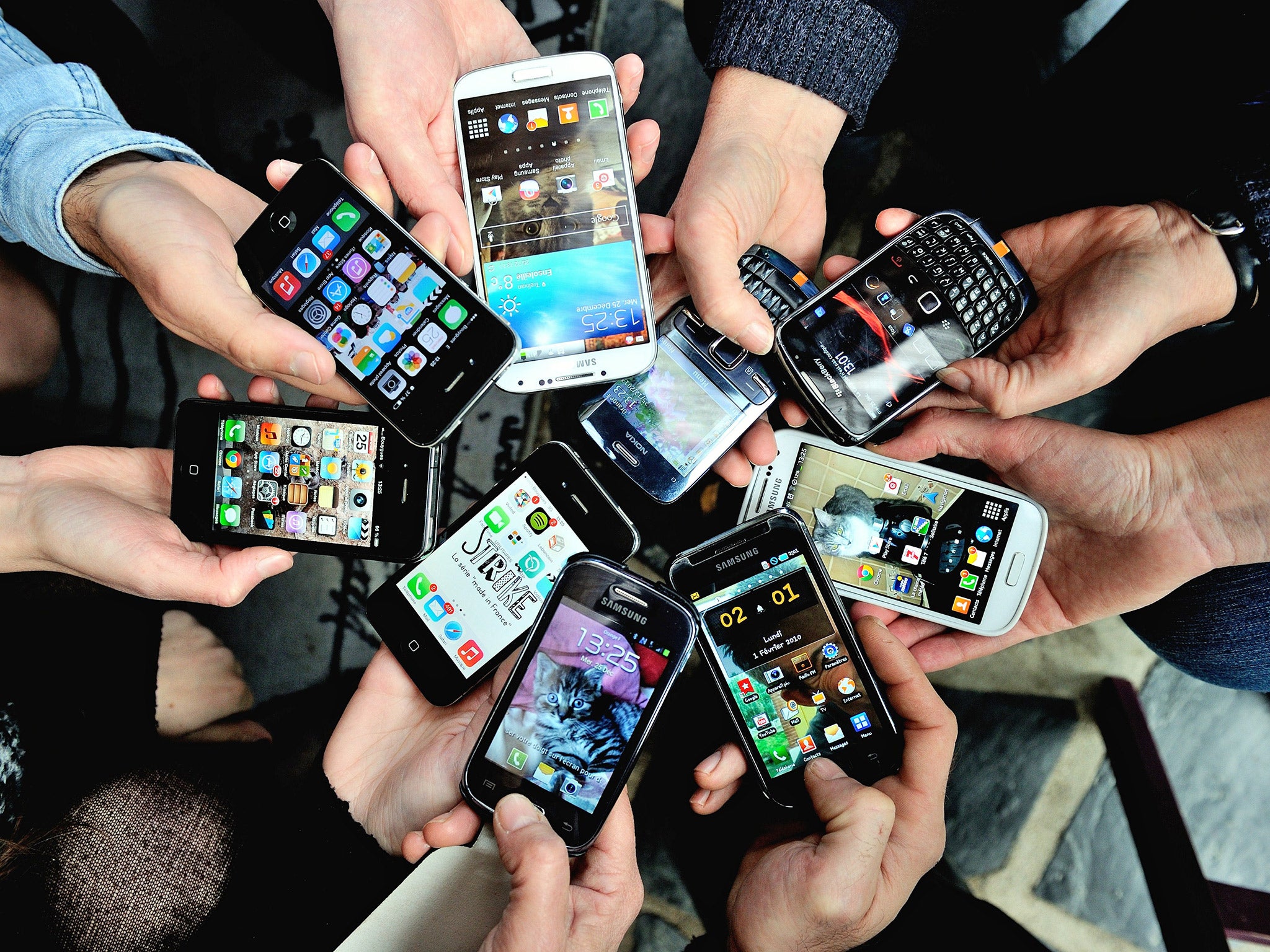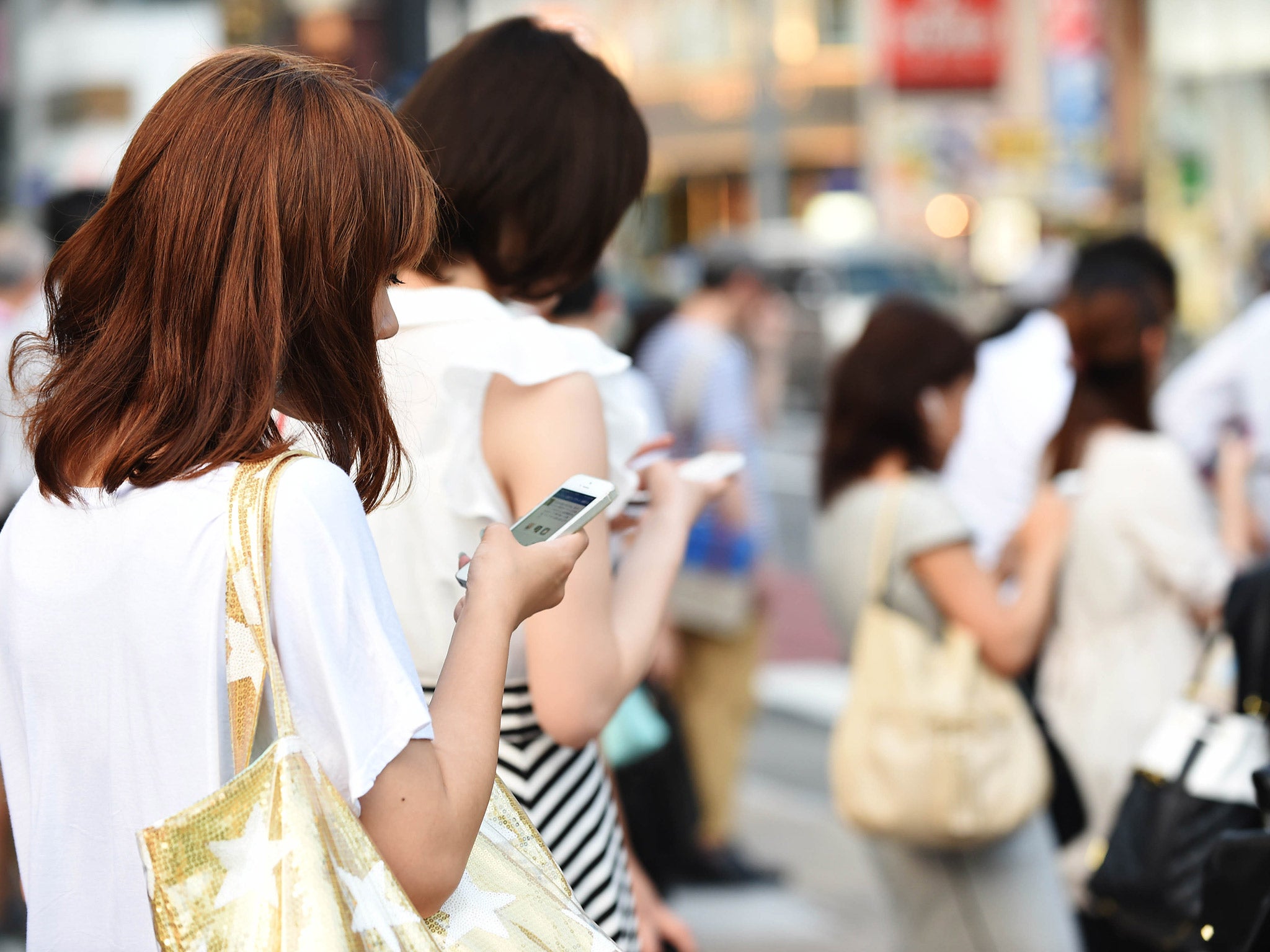Half of the adult population admit to being hooked on their smartphones
Mobiles rule in Ofcom report on the way we communicate

Your support helps us to tell the story
From reproductive rights to climate change to Big Tech, The Independent is on the ground when the story is developing. Whether it's investigating the financials of Elon Musk's pro-Trump PAC or producing our latest documentary, 'The A Word', which shines a light on the American women fighting for reproductive rights, we know how important it is to parse out the facts from the messaging.
At such a critical moment in US history, we need reporters on the ground. Your donation allows us to keep sending journalists to speak to both sides of the story.
The Independent is trusted by Americans across the entire political spectrum. And unlike many other quality news outlets, we choose not to lock Americans out of our reporting and analysis with paywalls. We believe quality journalism should be available to everyone, paid for by those who can afford it.
Your support makes all the difference.Smartphones have become so ubiquitous that a third of adults now feel the need to check them within five minutes of waking up in what experts are calling a “landmark moment” in the development of the devices.
So dependent are people on their mobiles, 85 per cent of adults have consulted their smartphones within the first hour of the day and 34 per cent of adults – 49 per cent of those under 24 – feel the need to check their phones within five minutes of waking up, according to research released by Ofcom.
Asked by the broadcast regulator if they were “completely hooked” on their phones, 61 per cent of under-24s and 48 per cent of all adults agreed they were.
A report by the regulatory body, said 2014 was the year in which the smartphone overtook the laptop as the favourite device for getting online. “What we have got is a landmark moment in the development of these devices,” said James Thickett, Ofcom’s director of research at the unveiling of the regulator’s annual Communications Market Report. Only 12 months ago, the laptop was twice as popular as the phone for accessing the Internet.
Today 66 per cent of Britons own a smartphone, rising to 90 per cent among 16-24s. Only a year ago it was a relatively luxury item, owned by only 39 per cent of adults. The Apple iPhone was the UK’s most popular smartphone brand, especially among the young, while the larger Samsung devices scored highly among older users.
The transformational impact of the smartphone is affecting almost all areas of communication and entertainment. “These devices are becoming more and more an important, vital hub for communication and information throughout the day,” said Jane Rumble, Ofcom’s director of market intelligence.
Smartphone use drove a surge in the growth of average time spent online from 16 hours 54 minutes per week in 2013 to 20 hours and 30 minutes last year. In 2005 the average time was less than ten hours a week.
But there are concerns that the devices are having a detrimental effect on aspects of human relationships. Ofcom said 59 per cent of people view smartphone use at restaurants in company as “unacceptable”, with 55 per cent taking a dim view of checking the phone while eating communally at home. There was more sympathy with smartphone use when socialising with friends (which 26 per cent thought unacceptable), or while using public transport (which only 5 per cent frowned on).
For 69 per cent meeting family members face to face is preferable to any digital communication and 32 per cent of those aged 16-24 admitted they “spend too much time online” compared to time with friends and family.

The importance of the TV set is suffering, the research found. Television viewing declined for a second year in a row, with the amount watched by children (aged 4-15) tumbling by 12 per cent last year to less than two hours a day.
The smartphone’s rise is propelled by the increased use of 4G mobile broadband, for which subscriptions grew from 2.7 million to 23.6 million in 2014. Users with 4G are more likely to shop online (55 per cent compared to 35 per cent). Ofcom said that 89.5 per cent of premises have access to at least one 4G service, although half a million have no mobile signal.
While over-55s cite the television as the device they would “miss the most”, it is the mobile phone which is most essential to those between 16 and 44. Which indicates that smartphone dependency is set to grow even further – unless something is found to replace it.
Our changing habits
Television
The Ofcom report says, on average, we spent three hours and 40 minutes a day watching televsion on a TV set in 2014 – 11 minutes less than in 2013
Radio
The number of 16-24-year-olds who are streaming music (39 per cent) is now almost the same as the number of those listening to music on the radio (42 per cent)
Birthday greetings
Traditionalists will rejoice: sending an old-fashioned birthday card is still the preferred method (38 per cent) while only 7 per cent send birthday greetings over email
Join our commenting forum
Join thought-provoking conversations, follow other Independent readers and see their replies
Comments